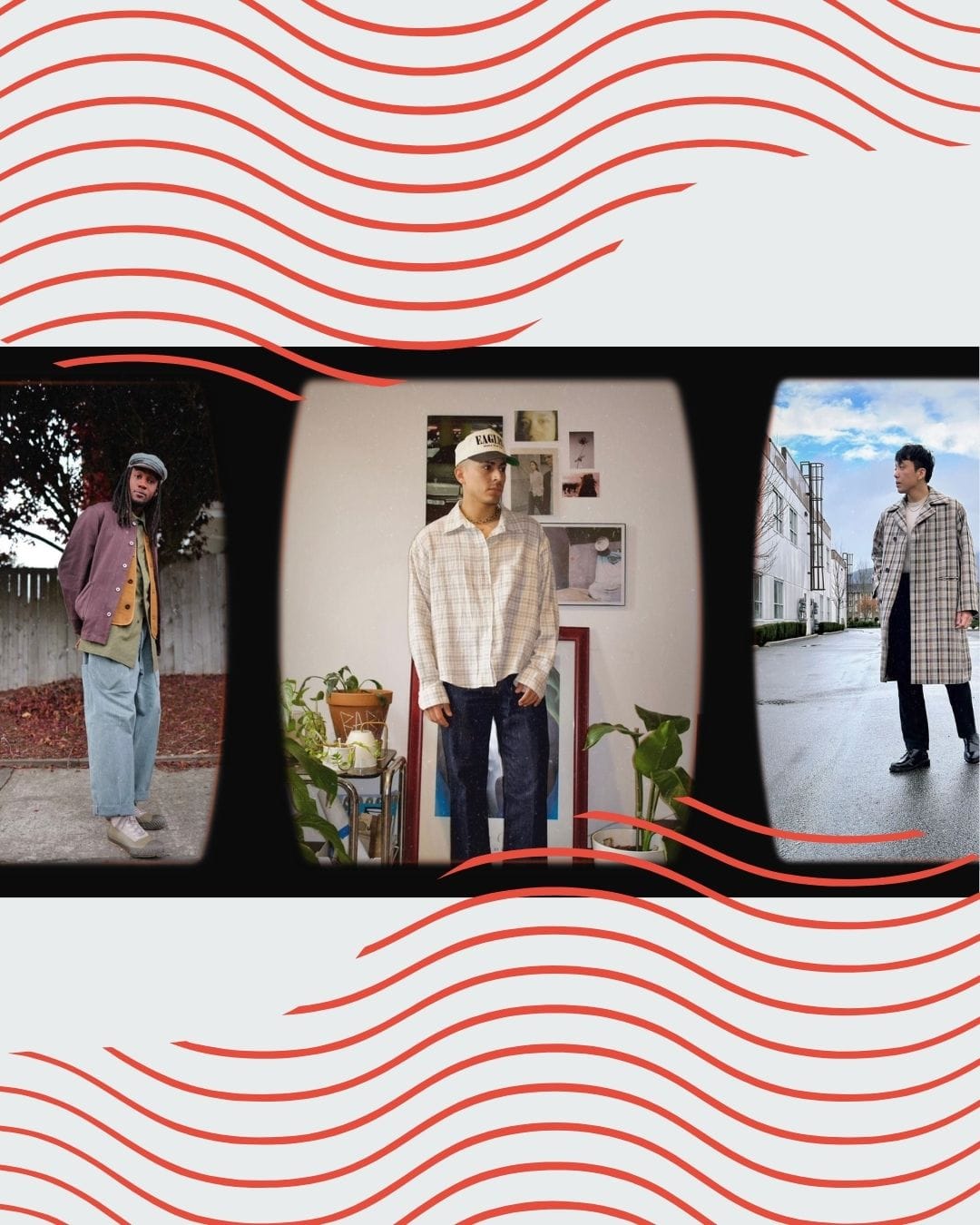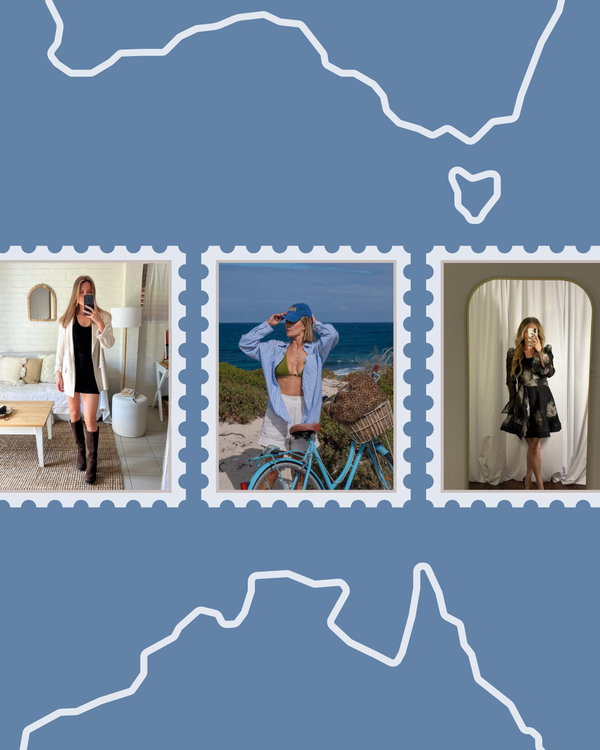Japanese Clothing Brands: Shop Heritage Denim, Street Style & Made-in-Japan Fashion
Explore heritage workwear, selvedge denim, technical outerwear, and Tokyo street style from Japan's finest labels. Shop the brands, browse outfit photos from the Parallel community, and discover your style.
Japan has long been at the forefront of global menswear, blending meticulous craftsmanship with innovative design. From heritage denim brands that obsess over every stitch to cutting-edge outdoor labels redefining technical wear, Japanese fashion offers something unique: a respect for process, an attention to detail, and a willingness to push boundaries while honoring tradition.
Whether you're into raw selvedge denim that ages beautifully, minimalist basics that last forever, or avant-garde pieces that challenge conventions, Japan's got you covered. Below is a comprehensive (but not exhaustive) guide to Japanese apparel brands across various categories.
Key Insights
- Japanese brands range from faithful 1940s reproductions to futuristic technical garments and affordable everyday basics.
- Made-in-Japan production differs from Japanese ownership—many brands manufacture internationally while maintaining Japanese design.
- Heritage artisan brands like The Real McCoy's use custom-milled fabrics and period-accurate details for authentic reproductions.
- Japan revolutionized raw denim with brands from Kojima pushing boundaries of indigo dyeing and fabric innovation.
- Understanding ownership matters: brands like Arc'teryx have strong Japanese presence but aren't Japanese-owned.
The Heritage Artisans
These are the brands keeping traditional craftsmanship alive, often reproducing vintage American workwear and military gear with obsessive attention to detail.
The Real McCoy's
The gold standard of Japanese reproduction clothing. Founded by Hitoshi Tsujimoto, who spent decades collecting vintage Americana before deciding to reproduce it himself. Every detail is painstakingly replicated—from custom-milled fabrics to period-accurate zippers. The brand operates several sub-labels:
- The Real McCoy's: Military and workwear from the 1940s-50s
- Joe McCoy: Civilian wear, sportswear, and workwear from the 1950s-80s
- Buco: Reproduction of the iconic J-series leather motorcycle jackets
All made in Japan with traditional methods. The sweatshirts alone are worth the entry price—made on vintage sinker weave machines in Wakayama.
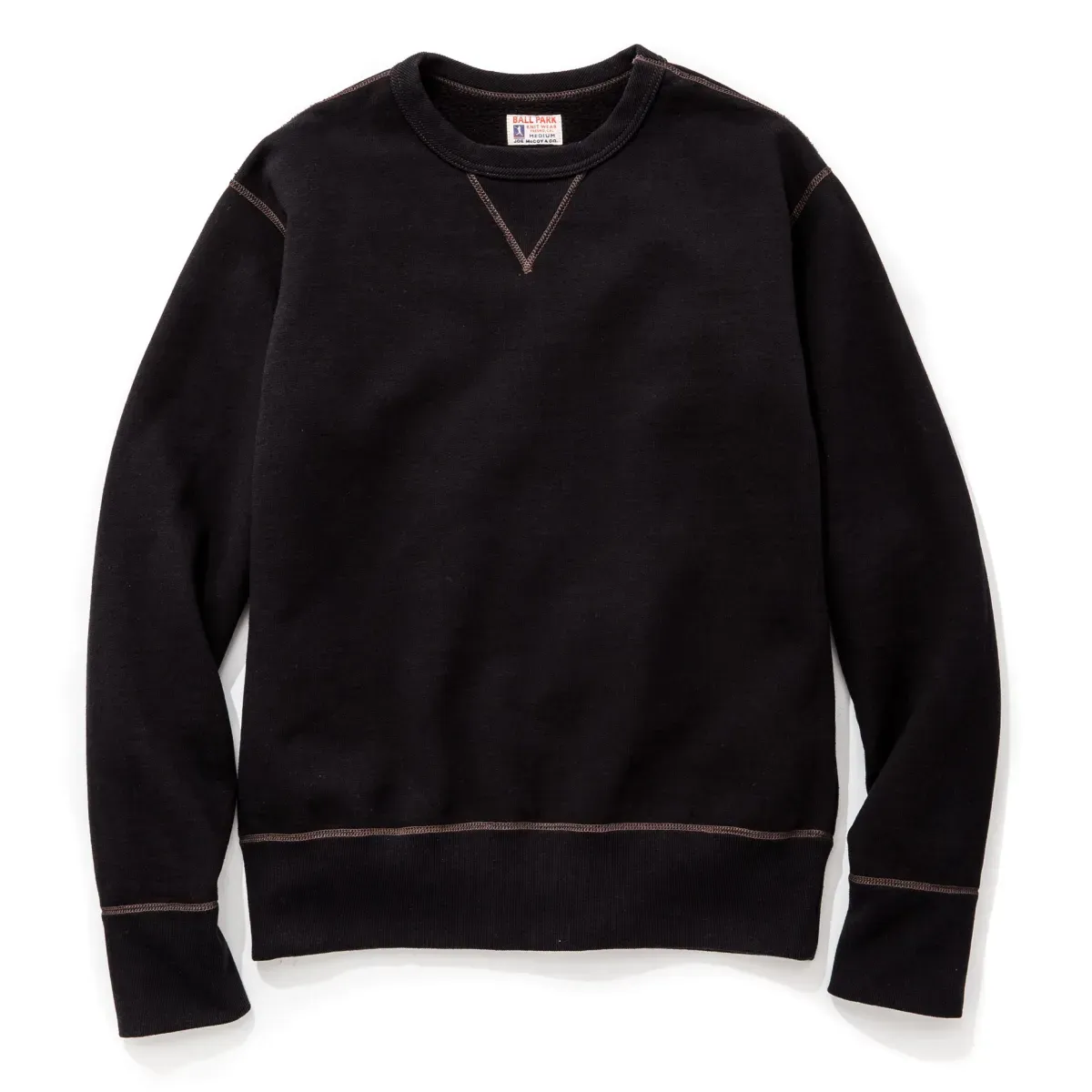
The Real McCoy's - BALL PARK CREWNECK
Crafted from premium materials, it features a timeless design enhanced by subtle stitching details. Ideal for layering or wearing solo, the neutral shade allows for versatile pairing with any wardrobe.
Buzz Rickson's
Sister brand to Toyo Enterprises, specializing in faithful reproductions of military flight jackets and uniforms. If The Real McCoy's takes a slightly modern approach to fit, Buzz Rickson's is committed to absolute accuracy—including imperfections. Made in Japan.
Sugar Cane & Co.
One of the foundational brands of Japanese Americana, Sugar Cane pioneered the use of sugar cane fibers blended into denim for a unique texture. Known for their distinctive leather patches (snakeskin, ostrich) and rugged workwear aesthetic. Made in Japan.
Warehouse & Co.
Operating since 1995, Warehouse meticulously reproduces vintage denim and workwear, with each collection representing a specific era. Their attention to historical accuracy is legendary. Made in Japan.
Freewheelers
Founded by former Real McCoy's designer Atsushi Yasui, Freewheelers takes a similar approach to vintage reproduction but with their own perspective. Known for their leather jackets and period-accurate sportswear. Made in Japan.
The Denim Masters
Japan revolutionized raw denim, and these brands continue to push the boundaries of what's possible with indigo.
Blue Blue Japan
All about traditional indigo dyeing (aizome). Everything comes in shades of blue, from deep indigo to faded sky. The pieces feel considered rather than costume-y, with softly structured silhouettes. Made in Japan.
Kapital
Kapital is... a lot. Founded in Kojima (the birthplace of Japanese denim), the brand mixes boro patchwork, smiley faces, vintage workwear, and traditional Japanese textiles into something gloriously unhinged. Love it or hate it, there's nothing else like it. Made in Japan.
Needles
Known for their velour tracksuits, butterfly logo, and vintage-reworked flannels. Needles takes classic American sportswear and gives it a Japanese art-school twist. The brand is famous for their track pants and their collaborations. Made in Japan.
Momotaro Jeans
Named after a Japanese folk hero, Momotaro makes some of the most sought-after raw denim in the world. Look for their distinctive pink selvedge line and peach logo. Made in Japan.
Pure Blue Japan
Known for their unique indigo dyeing techniques and irregular textures. Their "slubby" denim develops incredible fades. Made in Japan.
Naked & Famous Denim
Wait—this one's actually Canadian (based in Montreal), but they use Japanese denim and deserve an honorable mention for their innovative fabrics and collaborations.
The Outdoor Innovators
Japan's outdoor brands have successfully crossed over from the mountains to the streets, defining the "gorpcore" aesthetic.
Snow Peak
Founded in 1958 as a metal hardware manufacturer in Niigata, Snow Peak has evolved into a lifestyle brand that seamlessly blends camping gear with modern apparel. Their clothing works just as well in the city as it does around a campfire. Known for their titanium cookware and flame-resistant fabrics. Recent expansion to North America includes flagship stores in Portland and Brooklyn. Made in Japan and internationally.
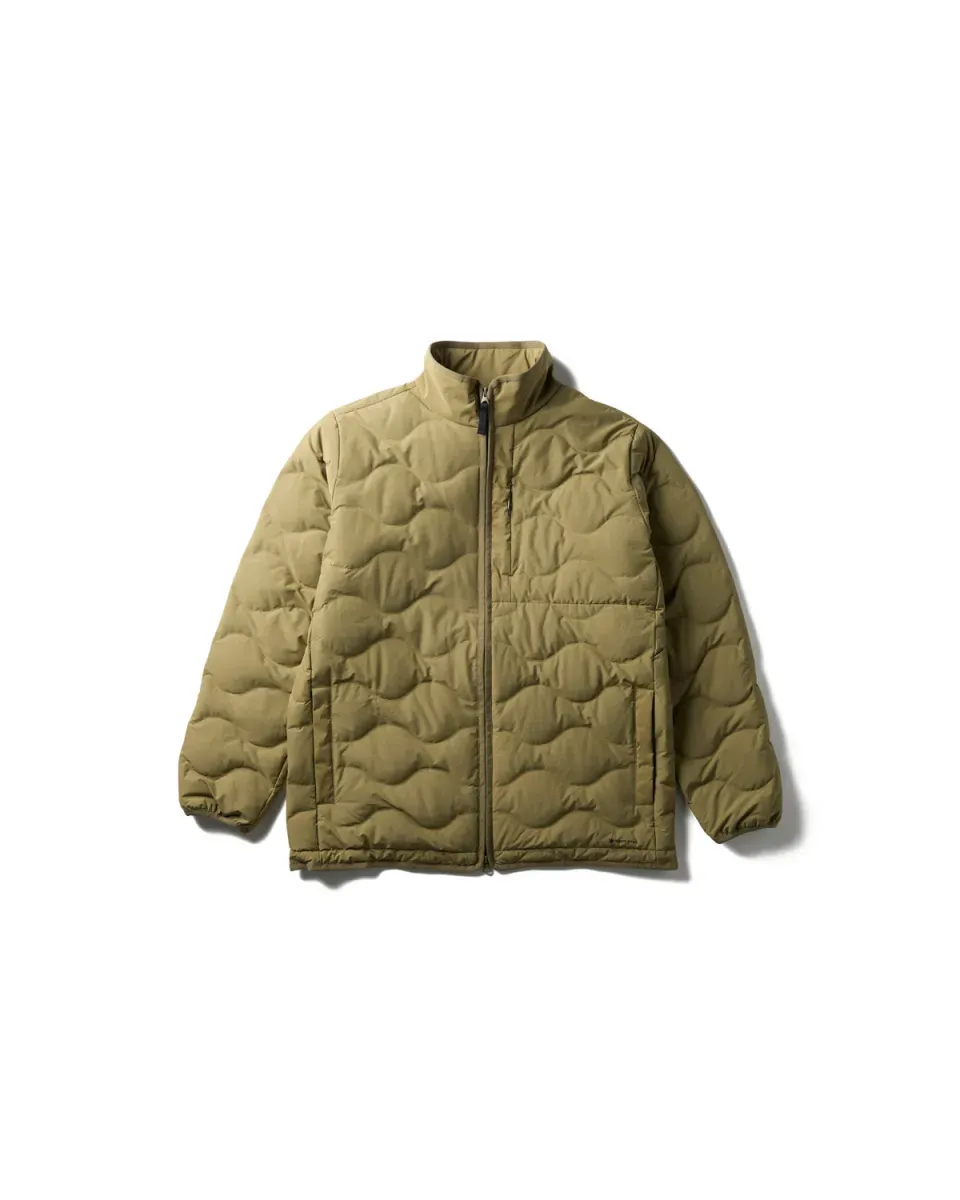
Snow Peak - Seamless Quilted Down Jacket
The Seamless Quilted Down Jacket is crafted from two high-density fabrics joined in a military quilt pattern.
Goldwin
The OG of Japanese outdoor wear, founded 70+ years ago. Goldwin manages licenses for The North Face in Japan and has recently become the protagonist of Japan's gorpcore movement. Their philosophy: harmony with nature. Made in Japan.
Nanga
Named after Nanga Parbat (the world's ninth-highest peak), this brand started as a bedding manufacturer in 1941 before transitioning to sleeping bags and down jackets. Their products come with a lifetime warranty. All down products made in Japan.
Montbell
Japan's most accessible outdoor brand, founded in Osaka in 1975. Known for their "Light and Fast" philosophy—lightweight, packable gear that doesn't compromise on performance. The Storm Cruiser Rain Jacket is legendary. Made in Japan.
White Mountaineering
Founded by Yosuke Aizawa in 2006, this brand blends performance materials with technical tailoring and layered silhouettes. Less traditional outdoor, more functional futurism. Made in Japan and internationally.
and wander
Contemporary outdoor wear with a minimalist aesthetic. Functional pieces that look at home on the trail or in Tokyo. Made in Japan.
The Minimalists
For those who appreciate understated elegance and impeccable construction.
Auralee
Founded in 2015, Auralee has quickly become an insider favorite. Clean cuts, elevated fabrics, and an understated vibe. If you like your fashion quiet and your construction flawless, this is your brand. Made in Japan.
The Parallel community styling Auralee:
- @Oppiken wearing an Auralee overcoat.
- @lmaozedong wearing an Auralee jean jacket.
- @extrarice wearing Auralee denim pants.
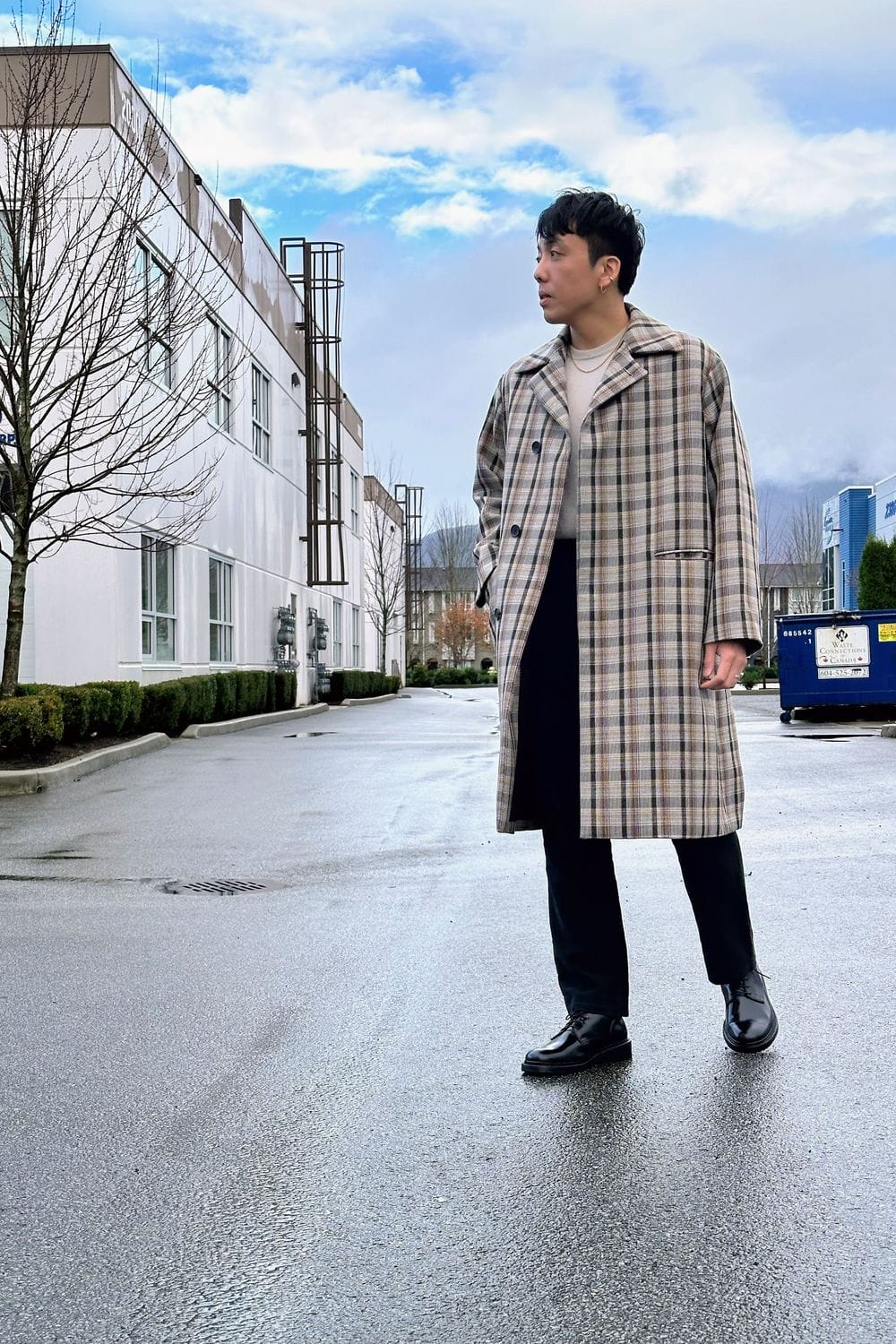
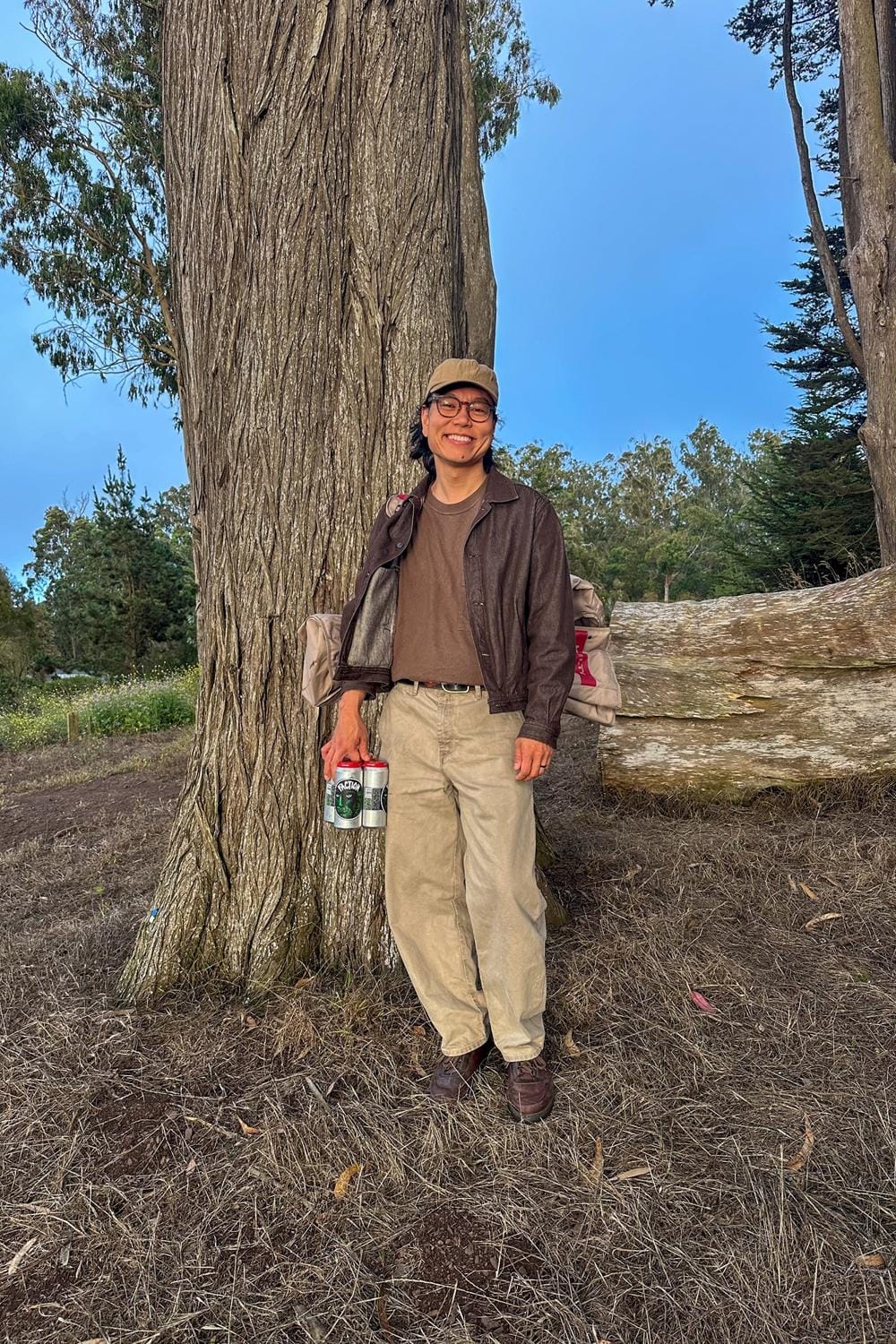
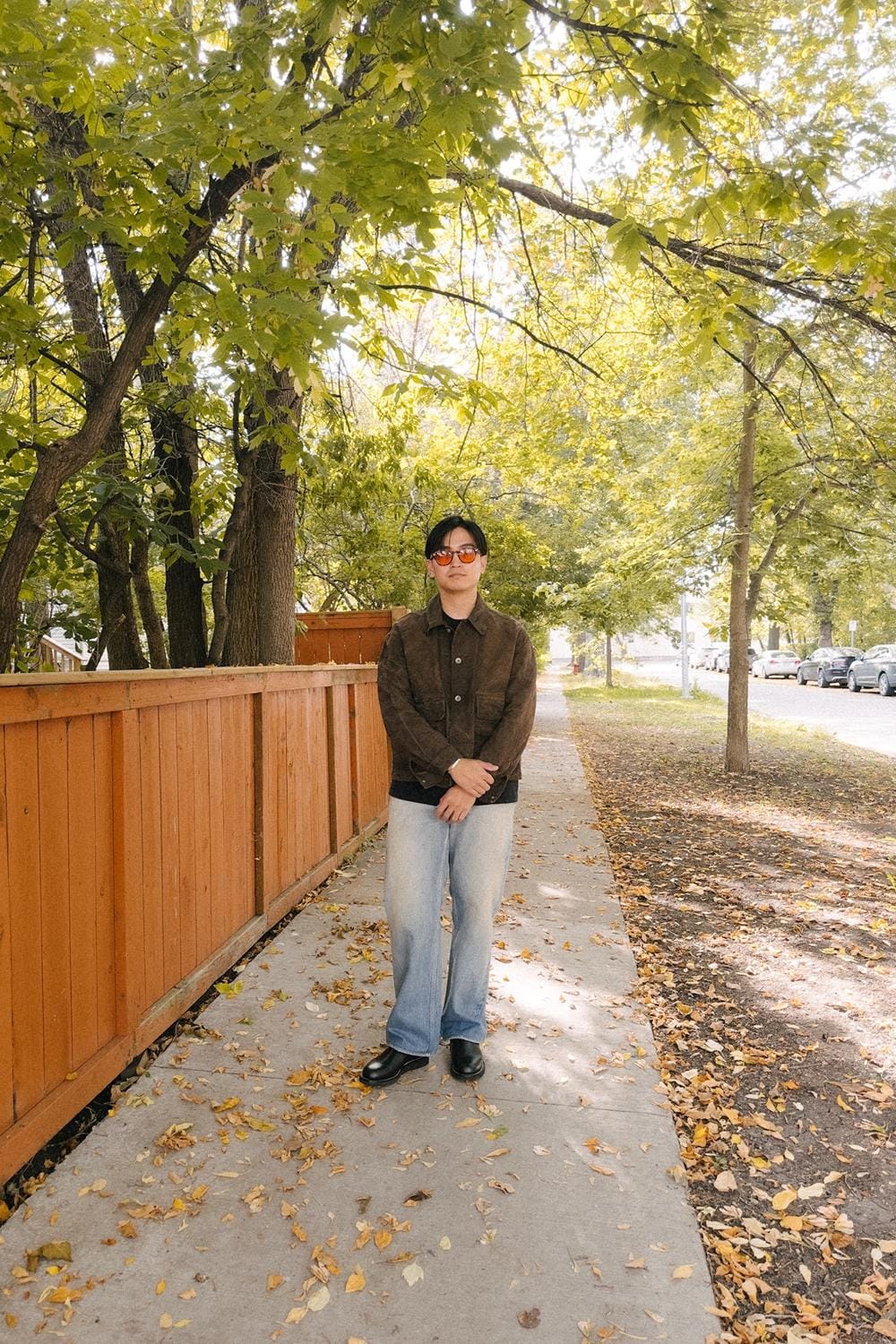

Explore the Parallel Shop
Start TodayComoli
Founded by Keijiro Komori, the brand focuses on relaxed silhouettes in premium natural fabrics. Comoli intentionally stays off social media, letting the clothes speak for themselves. The silhouettes are familiar (rooted in European and American menswear), but the textile selection is peerless. Made in Japan.
Graphpaper
Elevated basics with a focus on fabric and silhouette. Clean, minimal designs that work as building blocks for a wardrobe. Made in Japan.
YAECA
Timeless, utilitarian clothing that doesn't chase trends. Simple designs executed perfectly. Made in Japan.
The Avant-Garde Icons
Pushing the boundaries of what clothing can be.
Comme des Garçons
Founded by Rei Kawakubo in the 1970s, CDG spans from unwearable art pieces to the accessible PLAY line (with the iconic heart logo). Multiple sub-lines including Homme Plus, Shirt, and Black. Made in Japan and internationally.
Yohji Yamamoto
Dark, draped, and dramatic. Yamamoto's work is deeply personal and unmistakable. The Y-3 collaboration with Adidas brought his aesthetic to a broader audience. Made in Japan and internationally.
Issey Miyake
Known for pleated collections and forward-thinking fabrics. His lines (Pleats Please, Homme Plissé) are lightweight, low-maintenance, and iconic. Made in Japan.
Junya Watanabe
Former pattern cutter at Comme des Garçons who launched his own line under the CDG umbrella. Remixes workwear, techwear, and tailoring into something entirely new. Made in Japan and internationally.
Sacai
Founded by Chitose Abe (who worked under Rei Kawakubo), Sacai is known for hybrid garments that combine unexpected elements—think a blazer fused with a bomber jacket. Made in Japan.
The Contemporary Designers
Modern brands making waves internationally.
Shinya Kozuka
Brings a poetic and conceptual touch to contemporary menswear, drawing inspiration from art, literature, and everyday life. Relaxed, deconstructed silhouettes with signature play on proportion. Made in Japan.
TAAKK
Boundary-pushing approach mixing traditional tailoring with experimental techniques. One of Japan's most exciting contemporary labels. Made in Japan.
The Accessible Essentials
Quality basics at reasonable prices.
Uniqlo
Japan's biggest fashion export, owned by Fast Retailing Co., Ltd. (Japanese company founded by Tadashi Yanai, publicly traded). Known for tech-infused fabrics (HEATTECH, AIRism) and collaborations with designers. Manufacturing is primarily in China and Southeast Asia.
GU
Uniqlo's younger sibling, also owned by Fast Retailing. Even more affordable, targeting a younger demographic. Manufacturing is international.
Muji
Minimalist to the core. Simple, natural, functional clothing that reflects the same aesthetic as their home goods. Part of the Ryohin Keikaku Co., Ltd. family. Manufacturing is international.
Beams
Started as a small shop in Harajuku, grew into a tastemaking empire. Beams Plus in particular offers casual clothing that balances American influences with Japanese detail. Multiple sub-labels. Made in Japan and internationally.
The Tailoring Specialists
Kamakura Shirts
Specializes in dress shirts with a focus on quality and fit. Often compared to higher-end shirt makers but at accessible prices. Made in Japan.
Ring Jacket
Heritage tailoring brand known for their soft, unstructured approach to suiting. Made in Japan.
Brands That Are Not Japanese-owned
Check the fine print! These brands are commonly mistaken for being based in Japan.
Arc'teryx
While based in Canada with strong Japanese distribution, Arc'teryx is owned by Finnish conglomerate Amer Sports (which is itself owned by a Chinese company listed on the NYSE). Their Arc'One facility in Canada produces about 5% of their product, including some Veilance pieces. Most production is overseas.
Evisu
Founded in Osaka in 1991 by Hidehiko Yamane as a tribute to Levi's, Evisu (named after Ebisu, the Japanese god of prosperity) was sold multiple times and is now owned by various entities depending on the region. The brand split into different companies—Evisu Japan remains Japanese-owned, but Evisu International was sold to different investors over the years.
Notable Mentions by Category
Japanese Footwear Worth Knowing
- Asics: Founded in 1949, globally recognized for athletic footwear. Publicly traded Japanese company. Manufacturing is international, with some premium lines made in Japan.
- Onitsuka Tiger: The heritage line that became Asics. Now operates as its own brand with casual shoes alongside athletic wear.
- Visvim: Founded by Hiroki Nakamura, blending workwear, Japanese period clothing, and Native American influences. Shoes are made in America by expert artisans, clothing made in Japan. Extremely expensive but built to last.
- Hender Scheme: Contemporary leather brand using raw leather and traditional Japanese techniques. Famous for their leather reproductions of classic sneakers. Made in Japan.
- Shoes Like Pottery: Hand-crafting sneakers since 1873. Vulcanized construction. Made in Japan.
Accessories
- Porter (Yoshida & Co.): Founded in 1962, Porter makes some of the world's finest bags. Known for their nylon bags and meticulous construction. Made in Japan.
- Kapital (accessories): Beyond clothing, Kapital makes incredible bandanas, hats, and bags.
- Tabio: Japan's most popular sock brand. Comfort without compromising quality or design. Made in Japan.
The Takeaway
Japanese fashion isn't monolithic—it spans from faithful reproductions of 1940s workwear to futuristic technical garments to affordable everyday basics. What unites these brands is a respect for craftsmanship, an attention to detail, and a willingness to obsess over getting things right.
When shopping Japanese brands, consider what matters to you: Is it made-in-Japan production? Japanese ownership? Or simply the aesthetic and quality regardless of where it's made? Many brands manufacture internationally while maintaining Japanese headquarters and design teams.
The beauty of Japanese fashion is that there's something for everyone—from the heritage hunter to the minimalist to the avant-garde experimenter. Whatever your style, you'll find brands that take their craft seriously.

Join Parallel Today
Create a Free AccountFrequently Asked Questions
What makes Japanese denim different from other denim?
Japanese denim is distinguished by its use of vintage shuttle looms, natural indigo dyeing techniques, and attention to fabric weight and texture. Brands like Momotaro and Pure Blue Japan use unique dyeing processes that create distinctive fading patterns. The slubby, irregular texture of Japanese selvedge denim develops character over time, making each pair unique to its wearer.
Are Japanese clothing brands worth the premium price?
Many Japanese brands justify their pricing through superior construction, premium materials, and longevity. Heritage brands like The Real McCoy's use custom-made fabrics and traditional manufacturing methods that can't be replicated at scale. However, not all Japanese brands are expensive—Uniqlo and Muji offer excellent quality at accessible prices. The value depends on your priorities and whether you value craftsmanship and durability over fast fashion.
How do Japanese brand sizes compare to US sizes?
Japanese sizing typically runs smaller than US sizing, often by one to two sizes. A Japanese large might fit like a US medium. Always check the brand's specific size chart and measurements (chest, shoulder, length) rather than relying on S/M/L labels. Brands like Kapital and Needles may have oversized fits that differ from traditional Japanese sizing, so measuring is essential.
Where can I buy authentic Japanese clothing brands outside of Japan?
Reputable stockists include SON OF A STAG, Standard & Strange, Self Edge, Lost & Found, Clutch Cafe, Haven, and Article London for heritage and contemporary brands. Many brands now have international online stores or authorized retailers. Be cautious of heavily discounted items on third-party marketplaces, as counterfeits of popular brands like BAPE and Comme des Garçons are common.
What's the difference between Made in Japan and a Japanese brand?
Made in Japan refers to the country of origin of the product, while a Japanese brand refers to the company's ownership and headquarters. Brands like The Real McCoy's are both Japanese-owned and made in Japan. However, brands like Uniqlo and Human Made are Japanese-owned but manufacture internationally. Meanwhile, Arc'teryx has a strong presence in Japan but is actually owned by a Finnish-Chinese conglomerate.


